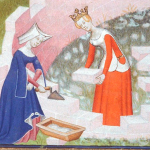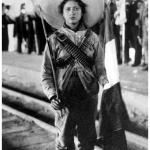 fernetzt. Verein zur Förderung junger Forschung zur Frauen- und Geschlechtergeschichte (Web)
fernetzt. Verein zur Förderung junger Forschung zur Frauen- und Geschlechtergeschichte (Web)
fernetzt ist ein 2011 gegründetes Netzwerk junger Forscher*innen aus dem Bereich der Frauen- und Geschlechtergeschichte. Ziel ist der gegenseitige Austausch, es sollen Impulse für Diskussionen gesetzt und die Sichtbarkeit junger Forschung erhöht werden. (Bericht zum 5-jährigen Bestehen 2016, Web.)
„fernetzt – der Blog“ wurde im November 2015 online geschalten. Hier werden kurze interdisziplinäre Essays, Berichte oder Rezensionen veröffentlicht.
Bisherige Posts (Web):
- In Korrespondenz. Frauenvereine in Österreich-Ungarn; von Dóra Czeferner
- Verhinderte Scheinehen ins Exil; von Irene Messinger
- „So ist das eben in der Ehe“. Zofka Kveder und die jugoslawische Frauenbewegung; von Dijana Simic
- Spuren sichten. Rezension zu Vida Bakondys „Montagen der Vergangenheit“; von Marina Rauchenbacher
- Strafprozesse zum Schutzalter und die Macht von Bildern; von Sonja Matter
- Alte Mythen neu verpackt. Camelia und die Menstruation; von Marion Wittfeld
- „Hausgehilfe“. Making of einer Verwaltungskategorie; von Jessica Richter
- Tagungsbericht Doing Gender in Exile, 18.-20.10.2017, Wien; von Irene Messinger & Katharina Prager
- Sex an der Front: Bordelle der k.u.k. Armee; von Michaela Sehorz
- Continue reading





![THEMA: Arbeitskampf um die Thyssen Henrichshuette Hattingen -nach den am 19.2.87 bekanntgewordenen Plänen sind 2900 Arbeitsplätze sind gefaehrdet - Hochoefen, Stahlwerk und Grobblechstrasse sollen stillgelegt werden - Mahnwache und Menschenkette "Wir schuetzen unsere Arbeitsplaetze" am 23.4.1987; via Website [Zum Vollbild anklicken]](https://salon21.univie.ac.at/wp-content/uploads/homepageImage_en_US-150x150.jpg)

